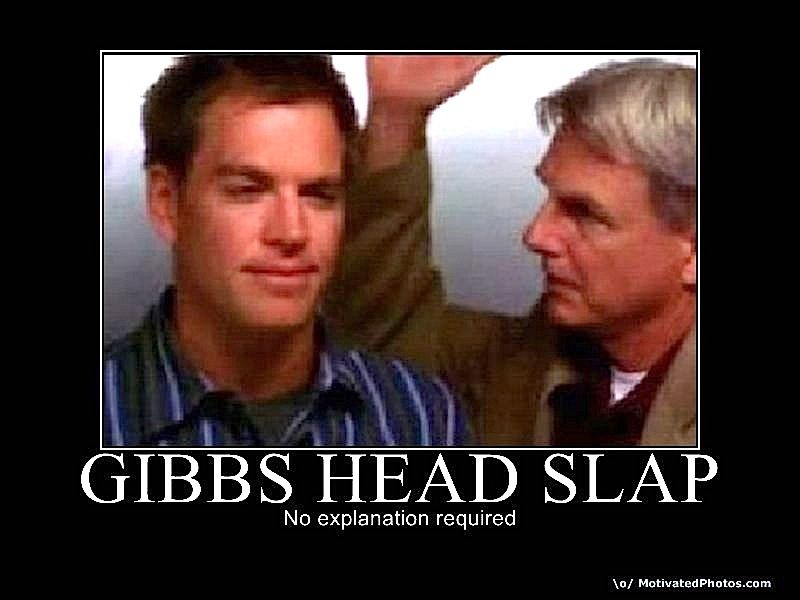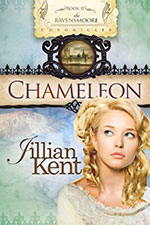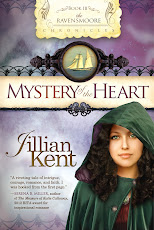My full time job is as a counselor for nursing students. I frequently
read the Chronicle of Higher Education and had to smile when I came
across this article, Accepting The Way You Work. It was so reminiscent of what we've all heard before. I wrote another blog post recently on the same subject The Organic Writer. Whether we consider ourselves outliners, organics, or somewhere in the middle, we each approach our writing in the way that works best for us.
I'm using National Novel Writing Month that begins November 1st to explore my ability to write without editing. That's hard for me to do, but I'm going to experiment on a larger scale.
Then I hope to utilize SCRIVENER which I bought last November and never utilized because I was on
deadline and knew there would be a learning curve. So I've picked out
some photos for my cork board for inspiration in the month of November. You can find some of your own here and here.
So are you participating in the NaNoWriMo Adventure?
Hey! I've moved. You'll be directed to my new blog in 3...2...1...
Cincinnati's Book Blast!
Tuesday, October 23, 2012
 |
| Suzanne, Terri, Joni, Terry, Me, Dee |
Unfortunately with the schedule I didn't get to sit in on the panel with fellow Books and Such agency mate, Ann Gabhart, but we eventually caught up with each other and of course I forgot to take a picture. :)
Book club members from River Hills Christian Church in Loveland, Ohio drop by to visit at Books by the Banks. Left to Right: Suzanne Mohr, Terri Weeks, Joni Baker, Terry Kirkland, Me, and Dee Bailey.
Isn't it Romantic? Romance Fiction Panel
 |
| Jillian and Jamie |
- Macy Beckett, Sultry with a Twist,
- Jamie Carie, The Guardian Duke: A Forgotten Castles Novel
- Jillian Kent, Chameleon
- Donna MacMeans, The Casanova Code

Jamie Carie was the other inspy author on this panel and friends Donna McMeans and Macy Beckett were romance authors from the general market. The second panel was titled, “Faith and Fiction: Inspirational and Christian Fiction.”
- J.S. Bailey, The Land Beyond the Portal
- Mary Ellis, An Amish Family Reunion
- Ann Gabhart, Words Spoken True
- Dionna Latimer-Hearn, Unexpected Places.
 |
| Moderator Amy, Macy, Donna, Me, and Jamie |
1) How has the e-book revolution effected us?
2) How do we get our writing done?
3) What do we think makes a strong hero and heroine?
4) Why did we choose to write in the genres we are currently writing in?
Amy asked many questions the audience seemed to enjoy hearing the answers to and then opened it up for questions from those in attendance. Lots of fun!
Duffy Brown, long time friend and fellow member of Romance Writers of America and Ohio Valley RWA was signing her first cozy mystery, Iced Chiffon, which is sure to be a winner.
 |
| Duffy Brown and Jillian at the end of a long day. |
If you would like to know more about who was in attendance this year: Fiction authors 2012 You can also explore all the other authors and genres who were there and get a taste for what a huge book festival is like in Cincinnati. What book festivals do you attend in your area of the country?
GALLEYS AND THE FASCINATING WORLD OF PRINT
Tuesday, October 16, 2012
 |
| Printing press from 1811, Wikipedia |
By the time a book is in galley form it's gone through a number of edits by the author and then on to the substantive edit, which in my case is done by freelance editors. I've had a different editor for each of my three novels. I love getting the galley for several reasons: it means the book is close to finished, I still have a chance to make changes (and you'd be surprised what I find that needs changed at the last minute), and I enjoy seeing the design used on the pages or the
Miriam-Webster defines it as:
a : an oblong tray to hold especially a single column of set type
b : a proof of typeset matter especially in a single column before being made into pages
 |
| Movable type on a composing stick, Wikipedia |
Wikipedia states that, "Galley proofs are so named because in the days of hand-set type,
the printer would set the page into galleys, the metal trays into which
type was laid and tightened into place. These would be used to print a
limited number of copies for editing mark-up. The printer would then receive the edits, re-arrange the type, and print the final copy." Here's their article about Galleys.
I found a wonderful article on The History of Printing that you are sure to find fascinating. We own much to Johann Gutenberg (1400? - 1468). Within this article I was surprised to see the name John Baskerville (1706 - 1775). Could this be where Doyle got the name for his famous novel, The Hound of the Baskervilles? See what research leads us to? There is a long list of links that will lead you to just about anything and everything you would want to know regarding the history of printing. Enjoy. Have you learned something about galleys or the printing world while working in the book publishing industry or elsewhere?
From 1812 to 2012 with the U.S. Brig Niagara
Tuesday, October 9, 2012
Debra Marvin is back this week with incredible information and pics on the naval aspects of the War of 1812. If you missed her first post on the war a couple weeks ago you can find it here. So come escape with us into the world of naval warfare against Britain. Be on guard though, I have a feeling that Deb may have a pop quiz later about naval stuff. Take it away, Deb!
Hi Jillian! On a beautiful September day in 2012, I had the pleasure of a dream-come-true day sail aboard the U.S. Brig Niagara. Just thinking of it now makes me smile and my heart go pitter-patter. Isn’t she beautiful?
 |
| photo borrowed from Niagara Canadian Military Heritage Society to promote the U.S. Brig Niagara |
At the start of the War of 1812, few ships capable of warfare plied the waters of the Great Lakes, so shipbuilding on these lakes became a competition won by the Americans. While they failed repeatedly in land battles, they knew winning the war along the Great Lakes would demand naval superiority—naval superiority shut down food and armament supply. For this post, I’m sticking with what happened on Lake Erie. The British had two warships on Erie when war broke out. The Americans had none.
 American Isaac Chauncey was given carte blanche to build and buy a naval presence on Erie. By the spring of 1813, two brigs were underway at Erie, PA, the Lawrence and the Niagara. The ships didn’t have to last long and were built with shortcut methods including green wood. In March of 1813 an upstart named Oliver Perry arrived at Erie after marching overland with 100 experienced sailors. The battle-tested and highly commended Master Commandant Jesse Elliot was put under the command of Perry who’d never commanded a ship in his life. Needless to say, but I’ll say it; Elliot and Perry had a strained relationship.
American Isaac Chauncey was given carte blanche to build and buy a naval presence on Erie. By the spring of 1813, two brigs were underway at Erie, PA, the Lawrence and the Niagara. The ships didn’t have to last long and were built with shortcut methods including green wood. In March of 1813 an upstart named Oliver Perry arrived at Erie after marching overland with 100 experienced sailors. The battle-tested and highly commended Master Commandant Jesse Elliot was put under the command of Perry who’d never commanded a ship in his life. Needless to say, but I’ll say it; Elliot and Perry had a strained relationship.
After a shaky start getting over the sand bars off Erie and Presque Isle, the Brigs Lawrence (the flagship--meaning the ship carrying the overall commander, in this case Perry) and Niagara headed west across the ‘inland sea’ known as Lake Erie to engage the enemy near the British port of Put-In-Bay, Ontario.
Aboard “my” day on the U.S Brig Niagara, Captain Wesley W. Heerssen, Jr. used a map to show ship movement during the famous battle. Perry, commanding the US Lawrence, ordered the fleet to fall in line. For some reason, the Niagara, with Elliot commanding fell back. After a lengthy, rousing battle, the Lawrence was out of commission. Perry, not ready to quit, had his flag brought down, (a flag proclaiming the last words of Captain James Lawrence, Don’t Give up the Ship) and ordered what he had left for a crew to lower a small boat. Perry (a descendant of William ‘Braveheart’ Wallace) was rowed to the Niagara, still uninvolved and fresh. Elliot opted out and took over another smaller ship, while Perry set the Niagara straight into the British line. Unable to shoot ‘forward’, warships had to present broadsides. By sailing directly between two British ships, the Niagara was able to inflict damage to both, with little damage to herself. Two other large British ships plowed into each other and became entangled.
 The battle was won shortly after and Commander Perry became the new darling of the nation and the U.S. Navy because the U.S now ruled the Great Lakes. Contentions with Elliot lived on long after as well. The Niagara did not end her service there and was involved throughout the end of the war and after as a transport ship.
The battle was won shortly after and Commander Perry became the new darling of the nation and the U.S. Navy because the U.S now ruled the Great Lakes. Contentions with Elliot lived on long after as well. The Niagara did not end her service there and was involved throughout the end of the war and after as a transport ship.
By 1820, the American naval station at Presque Isle off of Erie PA was closed and the Niagara was one of four ships scuttled (intentionally sunk). In 1836, George Miles raised the Lawrence and Niagara as merchant vessels. It wasn’t going to work. They weren’t big enough to hold cargo and were in poor condition. Back to the bottom of a cold lake for consideration another day. That happened in 1913 when the Niagara was raised for the 100th anniversary of the Battle of Lake Erie. It was towed around the lake and later put on show as a museum ship in Erie.
The state of PA bought Niagara in 1931 to completely restore but work was put off until 1963. A relatively sound ship was recreated using original wood and the ‘heart’ of the ship. But in 1980 it was completely revamped –taken apart and put back together to create a safety-first sailing vessel to be used as a training ship and floating classroom.
In this video, crew turn a topsail. Can you believe the amount of rope involved?
Some naval stuff:
A BRIG is a two-masted, square-rigged ship
A FRIGATE is a ship with not just one deck of guns but guns on the raised forecastle and quarterdeck.
A SCHOONER is a ship with two or more masts and fore and aft sales. (Not square sails)
A SHIP OF THE LINE is large with two full gun decks, plus guns on the two smaller raised decks.
A SLOOP is a single masted ship with fore and aft sails.
Next time you watch Pirates of the Caribbean, Master and Commander, or Horatio Hornblower, you’ll thank me for this. To follow my obsession with the War of 1812, visit Inkwell Inspirations blog. Thanks Jillian!
For more on the Brig Niagara, The War of 1812 see these links: Thank you!
http://www.eriemaritimemuseum.org/maritime_museum/History/battle_of_lake_erie/index.htm
 Debra E. Marvin tries not to run too far from real life but the imagination born out of being an only child has a powerful draw. Besides, the voices in her head tend to agree with all the sensible things she says. Debra likes to write, weed and wander and is blessed to have the best family and friends in the world. She has decided she needs to live closer to her grandchildren. She’s thankful each day that God is in control, that He chooses to bless us despite ourselves and that He has a sense of humor. Her work has finaled in the TARA, Great Expectations, Heart of the Rockies, Maggie, Rattler and most recently, the Daphne DuMaurier for the second time. Not too bad considering she’s trying a mashup of gospel and . . . gothic.
Debra E. Marvin tries not to run too far from real life but the imagination born out of being an only child has a powerful draw. Besides, the voices in her head tend to agree with all the sensible things she says. Debra likes to write, weed and wander and is blessed to have the best family and friends in the world. She has decided she needs to live closer to her grandchildren. She’s thankful each day that God is in control, that He chooses to bless us despite ourselves and that He has a sense of humor. Her work has finaled in the TARA, Great Expectations, Heart of the Rockies, Maggie, Rattler and most recently, the Daphne DuMaurier for the second time. Not too bad considering she’s trying a mashup of gospel and . . . gothic.
 Debra E. Marvin tries not to run too far from real life but the imagination born out of being an only child has a powerful draw. Besides, the voices in her head tend to agree with all the sensible things she says. Debra likes to write, weed and wander and is blessed to have the best family and friends in the world. She has decided she needs to live closer to her grandchildren. She’s thankful each day that God is in control, that He chooses to bless us despite ourselves and that He has a sense of humor. Her work has finaled in the TARA, Great Expectations, Heart of the Rockies, Maggie, Rattler and most recently, the Daphne DuMaurier for the second time. Not too bad considering she’s trying a mashup of gospel and . . . gothic.
Debra E. Marvin tries not to run too far from real life but the imagination born out of being an only child has a powerful draw. Besides, the voices in her head tend to agree with all the sensible things she says. Debra likes to write, weed and wander and is blessed to have the best family and friends in the world. She has decided she needs to live closer to her grandchildren. She’s thankful each day that God is in control, that He chooses to bless us despite ourselves and that He has a sense of humor. Her work has finaled in the TARA, Great Expectations, Heart of the Rockies, Maggie, Rattler and most recently, the Daphne DuMaurier for the second time. Not too bad considering she’s trying a mashup of gospel and . . . gothic.
Dark Tales Brimming with Light
www.inkwellinspirations.blogspot.com/
www.facebook.com/debra.e.marvin
www.debraemarvin.com and...twittering @DebraEMarvin
www.facebook.com/debra.e.marvin
www.debraemarvin.com and...twittering @DebraEMarvin
Blogging, Is It Worth It? Does It Make A Difference?
Tuesday, October 2, 2012
 |
| Gibbs is blogging? |
I've noticed that even Michael Hyatt is changing his thoughts about blogging after he posted How I Unplugged and Lived to Tell About It? A couple weeks after this post he then blogged about Why I Will Be Posting Less This makes perfect sense to me. But Michael Hyatt is well known and has a massive amount of information in his archives. If you haven't scanned these posts to see what might be of interest I encourage you to do so.
Since being published in 2011 the responsibilities of completing a series, working the day job, finding time to spend with my husband and family have become increasing complicated. How to manage everything there is to manage is a continuing question I'm searching to answer. And I know I'm not the only one. I try to ask myself the question I frequently ask the college students that I counsel, "How important is it?"
 |
| That's not possible. Is it? |
So what are we going to do about it? What am I going to do about it? I've already gone from three times a week to twice a week to currently once a week. Hmmm. Blogging, has it morphed into something else? Has it grown obsolete? Is Twitter and Facebook where it's happening now? My agent also recently posted the question Is Facebook Here To Stay?
C.S. Harris commented on blogging as well. See her post at Asocial. I can relate to this. I really want to blog when I have something to say that I really want to say and not feel pressured into doing it because it's what we authors are supposed to do to draw readers in. For the most part I think we frequently draw other writers in and that's okay because writers also read but they really aren't our target audience, right? And I don't want to hire an assistant to blog for me.
Group blogging may be the best option but it depends. Some group blogs work and some not so much. My two favorites have to be The Kill Zone and Seekerville. Do you have favorite group blogs you think are very effective and fun too?
 |
| I don't blog! |
I want to write wonderfully entertaining novels that people will read and look forward to reading. Frequent blogging may interfere with my ability to do that well. So I'm going to be doing some experimenting. If you follow me you're going to notice some changes and it may be things that happen spontaneously or not. :)
James Scott Bell in his post entitled, Social Media Marketing Made Easy said:
Don't Hurt Your Writing Time or Your Life
If you find your social media presence detracting from your writing time and your ability to produce quality words, cut back. If you're on Facebook more than you're with your family, check your priorities. This stuff isn't as important as either of those two things.
What do you think and feel about blogging? About social media in general? Is Twitter, Facebook, etc. enough? Is a great website enough regarding DISCOVERABILITY? I found this link via JSB's blog. Digital Book World I've always heard that word of mouth is the best way to sell our books after we've written a great book. I wonder if that's still true? What's your take on blogging? How far are you willing to go?
Subscribe to:
Posts (Atom)























